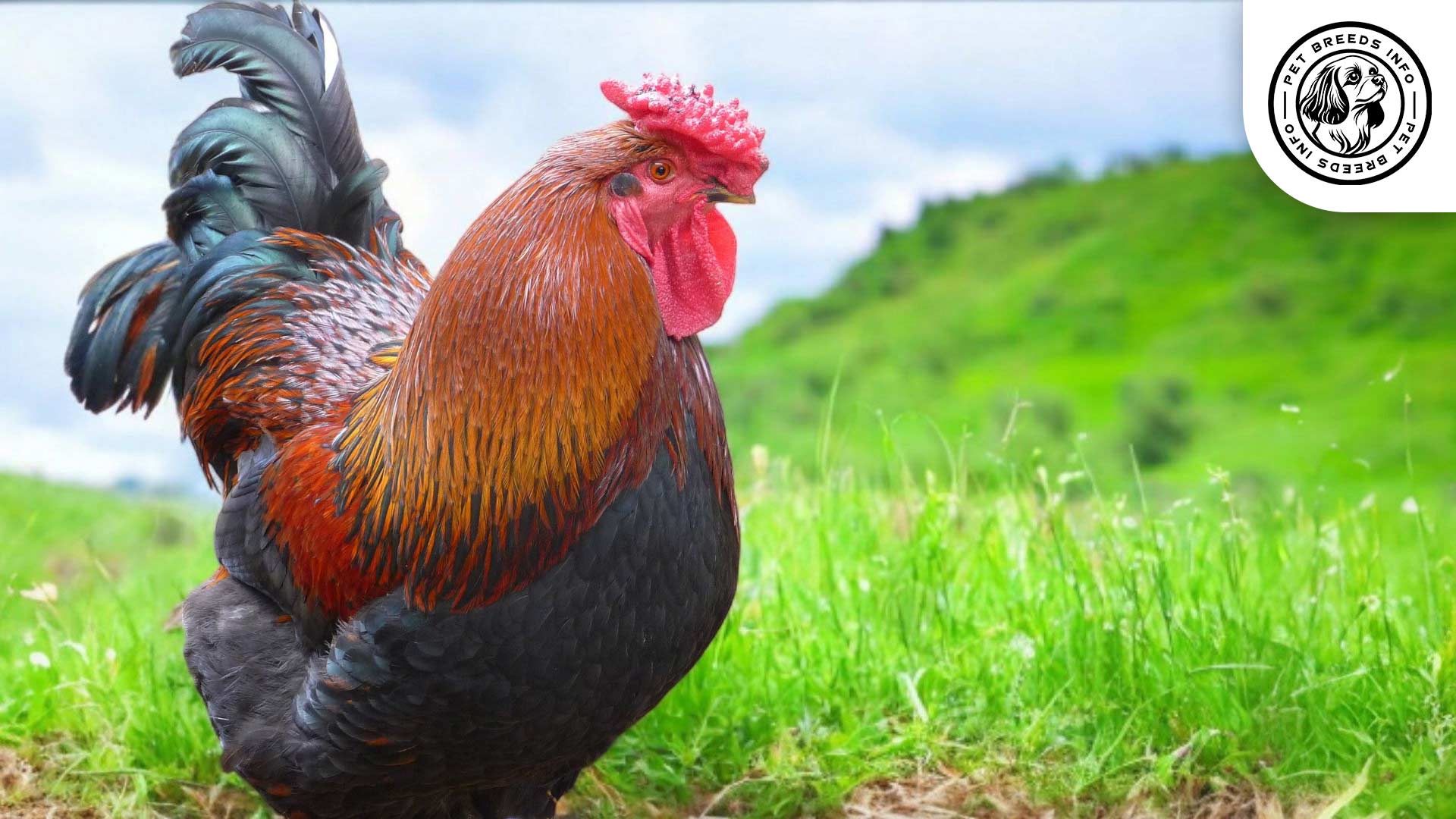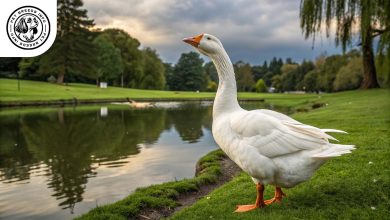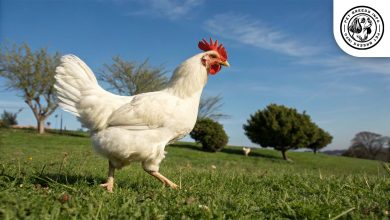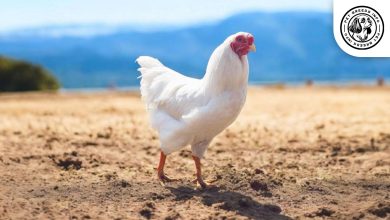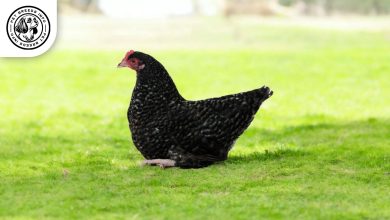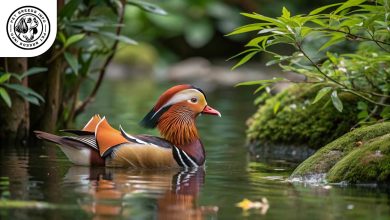Derbyshire Redcap Chicken Breed: Personality, Lifespan & Care
General Introduction of the Breed
The Derbyshire Redcap Chicken is a rare heritage poultry breed originating from the Derbyshire region of England. It is sometimes simply called the Redcap.
The breed has a long history, dating back several centuries, where it was primarily developed as a dual-purpose bird for both egg production and meat. Due to industrialization and the rise of hybrid breeds, the Derbyshire Redcap has become increasingly rare, though it remains valued by poultry enthusiasts and conservationists.
Table of Contents
| Common Name | Derbyshire Redcap Chicken |
| Scientific Name | Gallus gallus domesticus |
| Origin | Derbyshire, England |
| Size | Medium; Roosters: 7–8 lbs, Hens: 5–6 lbs |
| Lifespan | 6–10 years |
| Colors | Rich red/maroon with black-tipped feathers |
| Talking Ability | Low; occasional clucking |
| Noise Level | Moderate |
| Social Behavior | Independent but peaceful in flocks |
Physical Characteristics
Derbyshire Redcaps are medium-sized chickens with a sturdy build. Roosters typically weigh around 3.2 to 3.6 kg (7-8 lbs), while hens weigh approximately 2.3 to 2.7 kg (5-6 lbs).
The breed is easily recognized by its striking plumage, which consists of rich red or mahogany feathers with black-tipped tails and wings. The most distinctive feature of the Redcap is its large rose comb with intricate, well-developed lobes, which sets it apart from other breeds.
They have medium-sized, reddish-brown eyes, short and neatly shaped wattles, and clean yellow legs without feathering.
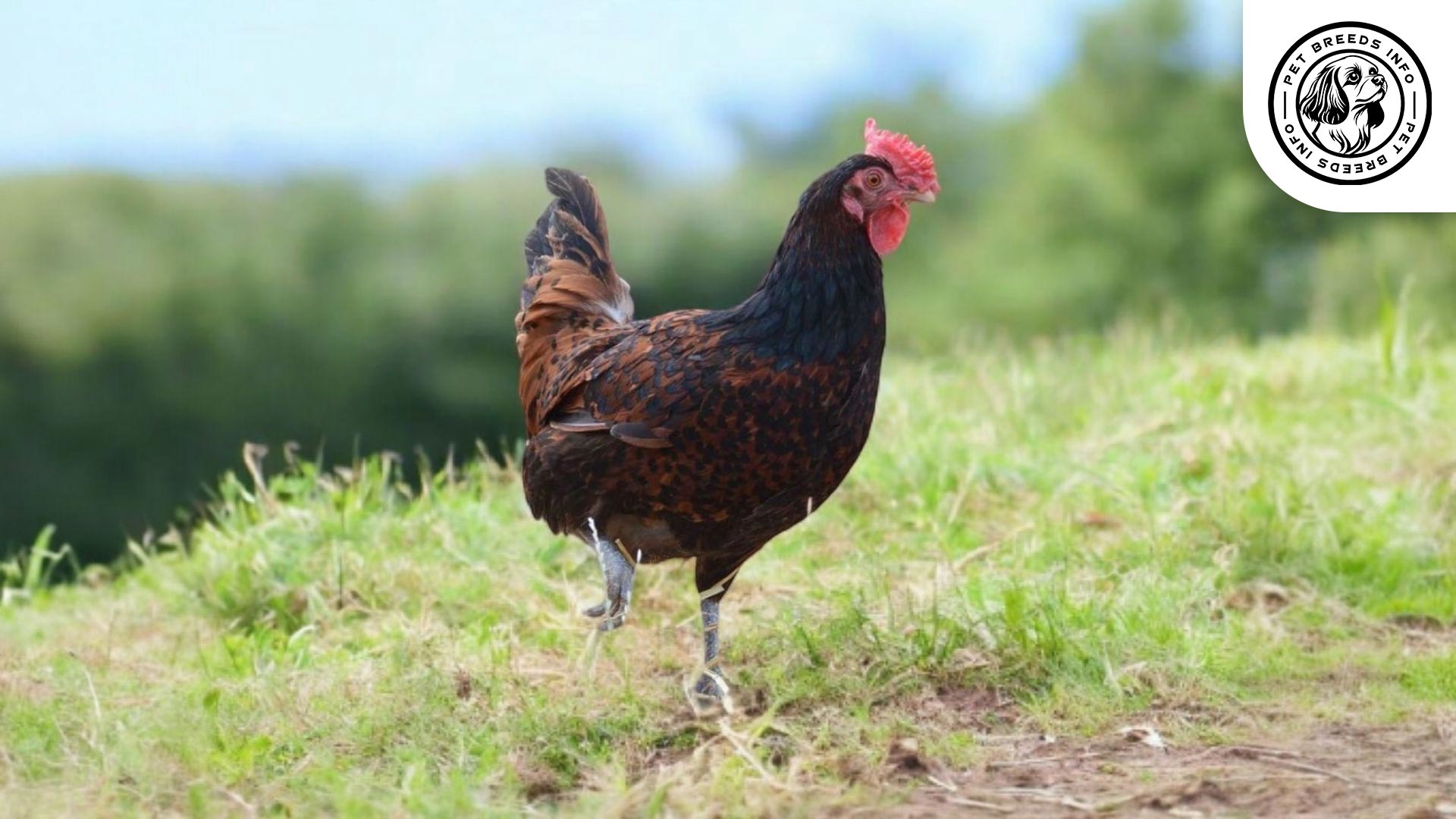
Personality and Temperament
Derbyshire Redcaps are highly independent and intelligent birds, making them excellent at foraging. They are known for their alert and active nature and do well in free-range environments.
While not the most affectionate breed, they can become accustomed to human interaction if regularly handled from a young age. Their social behavior in flocks is generally peaceful, though roosters can be territorial.
They have a high level of environmental awareness and tend to be wary of predators.
Care and Maintenance Requirements
These chickens thrive best in free-range or semi-free-range settings, where they can forage for insects, seeds, and greens. They are not well-suited for confinement.
Their plumage provides good protection in various weather conditions, but they require a well-ventilated coop with a dry, clean environment to prevent infection or frostbite in colder seasons.
Read More: Chantecler Chicken
Regular health checks should include comb inspections and parasite control, as their large comb can be prone to frost damage in extreme cold.
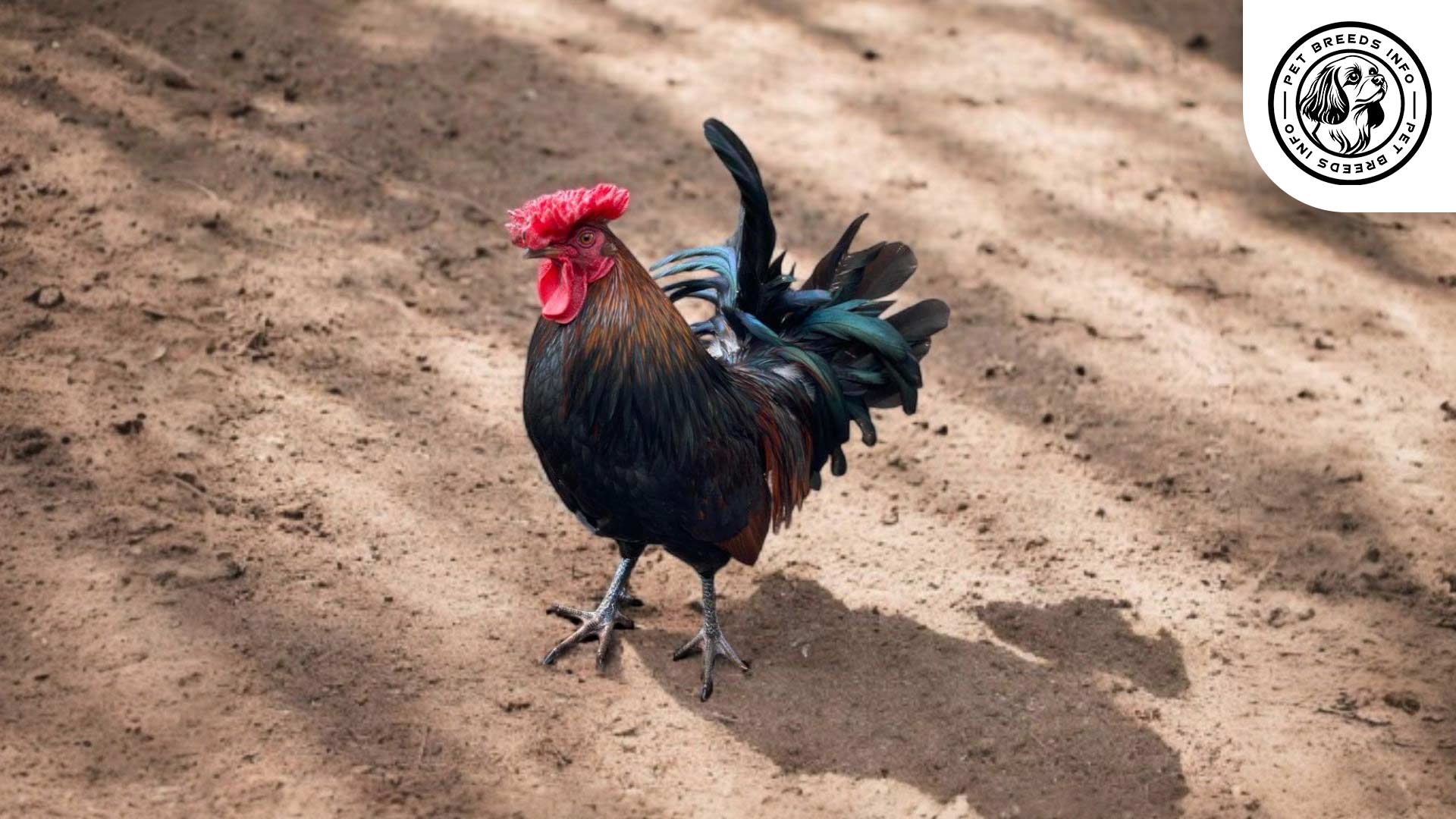
Diet and Nutrition
Derbyshire Redcaps perform well on a balanced diet consisting of high-quality poultry feed, supplemented with grains, vegetables, and protein sources such as mealworms or black soldier fly larvae.
For optimal egg production, hens should receive additional calcium through crushed oyster shells or other supplements.
They should avoid processed or salty foods, moldy feed, and toxic plants like avocado and raw beans.
Health and Common Medical Issues
This breed is generally hardy and disease-resistant. However, they can be susceptible to common poultry ailments such as mites, lice, and respiratory infections.
Their large combs make them vulnerable to frostbite in cold weather, so precautions like applying petroleum jelly in winter can help.
The average lifespan of a Derbyshire Redcap is around 6-10 years with proper care.
Standard poultry vaccinations are recommended to protect against common viral diseases.
Read More: Gloster Canary
Training and Behavior Management
While not commonly “trained” like dogs, Derbyshire Redcaps can be conditioned to respond to food-based rewards and consistent routines.
They are independent and may not be as cooperative as more docile breeds, but early exposure to handling can help them become more social.
Interaction with Other Animals and Humans
Derbyshire Redcaps generally get along well with other chickens but can be assertive in mixed flocks. They are not overly aggressive but are best housed with non-aggressive breeds.
They are suitable for families but are not the most docile birds for young children, as they prefer a more hands-off approach.
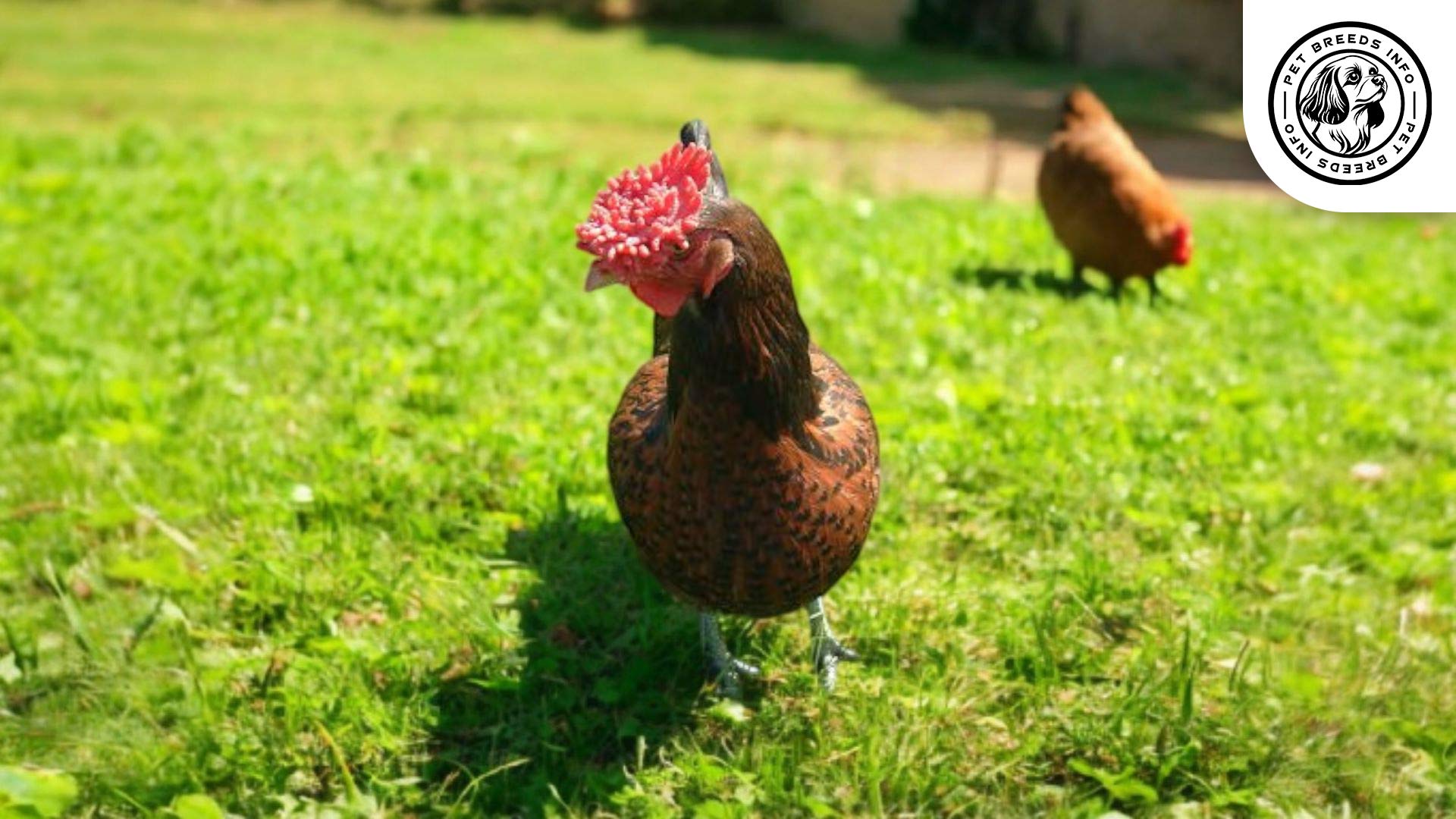
Price and Availability
Due to the rarity of the breed, Derbyshire Redcap chickens can be harder to find than more common poultry breeds. Chicks typically cost around $5 to $15 each, while adult birds may range from $30 to $50 depending on lineage and quality.
The best sources for acquiring Derbyshire Redcaps include heritage poultry hatcheries, breed conservation programs, and reputable breeders.
Conclusion and Final Thoughts
The Derbyshire Redcap Chicken is an excellent choice for poultry enthusiasts who appreciate rare, self-sufficient breeds. They require ample space and are best suited for free-range farms or large backyards rather than small enclosures.
Potential owners should consider this breed’s strong foraging instincts and independent nature when adopting them for a flock. With proper care and management, Derbyshire Redcaps can be a rewarding choice for sustainable egg production and breed conservation.
Read More: Lincolnshire Buff Chicken
FAQ
Are Derbyshire Redcap Chickens good for beginners?
They are better suited for experienced keepers due to their independent and active nature.
Do Derbyshire Redcap Chickens lay a lot of eggs?
Yes, they are good layers of medium to large white eggs.
Can Derbyshire Redcaps live in confined spaces?
No, they thrive best in free-range environments where they can forage naturally.
How can I protect a Derbyshire Redcap’s large comb in winter?
Apply petroleum jelly on the comb during freezing temperatures to prevent frostbite.
Where can I buy Derbyshire Redcap chickens?
They are available through heritage breed hatcheries, conservation groups, and specialized breeders.
